International
A year on from Argentine abortion law, change is slow
AFP
A year ago Argentina joined the limited ranks of Latin American countries to have legalized abortion, but while that gave hope to millions of women, changing mentalities, practices and infrastructure has proved more difficult.
“In small villages, you go for an ultrasound in the morning and in the afternoon the baker congratulates you on your pregnancy,” Monik Rodriguez, 33, told AFP.
Rodriguez, who has three children, runs a service accompanying women who want to have an abortion in Salta, a conservative Catholic province in the South American country.
Away from the big city of Buenos Aires, where women erupted in celebration when the law was approved, many in more remote and conservative areas of Argentina face the same stigma as before.
“There are still things that need to come out of hiding,” said Rodriguez, who can take up to 125 telephone calls a month as part of the project launched by the Women’s Strength civil association.
“The most important thing is to listen. It’s about trying to overcome the hurdles, accompanying them through the health system so they don’t get lost in the bureaucratic labyrinth.”
Rodriguez takes calls from all sorts: teenagers and first-time mothers to women with large families and even those that are pre-menopausal.
“On this line, abortion is not recommended but neither is motherhood romanticized,” said Rodriguez, who underwent a secret abortion a decade ago when already mother to one child.
“I was late and had an abortion. It went badly and I had to go to hospital. The tests showed I hadn’t been pregnant.
“It was the secrecy that created worry. Along with misinformation, that is what puts us at risk.”
The government estimates that 3,000 women died between 1983 and 2020 in clandestine abortions, of which there were up to 500,000 a year.
– Anti-abortion pressure –
For a century, abortion was only legal in cases of rape or if the mother’s life was at risk.
Legalization has not led to a sudden spate of abortions, particularly in places like Salta.
Miranda Ruiz, 33, is the only doctor in Tartagal — a small town of 75,000 people in Salta — not to exercise her legal right to be a conscientious objector to carrying out abortions.
Anti-abortion groups in the town are influential.
In September, Ruiz was briefly detained following an accusation by the aunt of a 21-year-old patient that she had performed an abortion beyond the authorized limit of 14 weeks.
Feminist groups are demanding that her case be dismissed.
“It is a way of bringing the other doctors to heel,” said Sofia Fernandez, a member of the National Campaign for the Right to Abortion — a collective of 300 feminist organizations that have been fighting for 15 years for change.
They say there are still 1,500 people facing criminal cases over abortions.
The complaint against Ruiz was the only one made in 2021, although there have been 36 court filings against the law, mostly claiming it is unconstitutional.
“Of those, 24 have already been dismissed,” said Valeria Isla, the director of sexual and reproductive health at the health ministry.
– ‘Huge inequality’ –
“There is a huge inequality in access to the practice depending on location,” said Isla.
During the course of 2021, the number of specialist medical teams carrying out abortions rose from 943 to 1,243 despite the pandemic complicating matters.
Distribution of the drug misoprostol, which chemically provokes abortions, rose from 9,000 in 2019 to more than 43,000 in 2021.
“But there is a lot of demand and we’re not able to increase (the number of) these (teams) at the necessary rate. It’s a structural stumbling block,” added Isla.
There were more than 32,000 abortions conducted in public hospitals and clinics in 2021, said Isla, whose big goal for 2022 is to train medical teams specialized in abortions, to make their services more widely available and to inform women of their rights and the tools at their disposal.
That would help Rodriguez avoid taking calls from desperate young teenagers like one “locked in a bathroom crying … she had just dropped a home pregnancy test down the toilet and couldn’t afford to buy another one.”
International
Trump administration begins downsizing ‘bloated’ state department workforce

The U.S. Department of State issued layoff notices on Friday to more than 1,300 employees both domestically and abroad, marking the start of a workforce reduction aimed at trimming what officials have called a “bloated” staff. The move is part of President Donald Trump’s broader effort to restructure the federal government.
According to local media reports, more than 1,100 Civil Service employees and around 250 Foreign Service officers received notifications via email. Those affected will be placed on administrative leave for periods ranging from 90 to 120 days from the date of their dismissal notice.
The job cuts are part of a plan to centralize and streamline the agency’s operations without disrupting its overall functioning. The restructuring was designed by Secretary of State Marco Rubio, who had previously informed Congress in May of his intention to reduce the department’s workforce by 15%. The State Department currently employs about 18,000 people.
According to the top U.S. diplomat, the goal is to optimize what he described as a “bloated bureaucracy that stifles innovation and misallocates scarce resources,” as well as to eliminate remnants of “radical political ideology.”
The reorganization is expected to hit hardest in offices focused on human rights and refugee issues, which will now be handled by regional bureaus, according to The New York Times.
“We inherited a system that needed reform, and we are delivering it,” said State Department spokesperson Tammy Bruce on Thursday, adding that the Administration is committed to a foreign policy that puts U.S. interests first.
International
Trump defends Bolsonaro, hints at talks with Brazil after tariff warning

U.S. President Donald Trump said on Friday that he “might at some point” choose to speak with the Brazilian government after threatening to impose a 50% tariff on imports from the South American country, citing what he claims is a political persecution against former president Jair Bolsonaro.
“I might talk to them at some point,” Trump said when asked whether he had spoken with officials in Brasília following the tariff threat he sent earlier this week.
The president once again insisted that the government of President Luiz Inácio Lula da Silva is “treating former President Bolsonaro very unfairly.” He reiterated his admiration for Bolsonaro, calling him “a good negotiator” in trade matters.
“I shouldn’t like him because he was such a good negotiator. But he was an honest man,” Trump stated before departing Washington for flood-affected regions in Texas.
“I can tell the difference between those who are corrupt and those who are honest,” the Republican added, referring to the far-right former Brazilian president.
On Wednesday, Trump sent a letter to the Brazilian government announcing a 50% tariff on Brazilian imports starting August 1.
International
Sheinbaum slams ICE raids after 355 mexicans detained and 67,000 repatriated

Mexican President Claudia Sheinbaum stated on Friday that at least 355 Mexican migrants have been detained in various immigration raids across the United States, and over 67,000 have been repatriated since January 20, when Donald Trump’s administration began.
“There are 355 Mexican nationals directly linked to the raids who have been detained,” the president reported during her morning press conference.
She clarified that, on Thursday alone, following a raid on agricultural fields in California, the Mexican consulate received 25 calls from relatives seeking assistance for the detainees. However, the total number of those arrested is still being verified.
Sheinbaum’s comments come in response to Thursday’s reports that Mexican workers were detained by Immigration and Customs Enforcement (ICE) during raids on farms in California, specifically in Santa Barbara County, in the Carpinteria area.
The actions of ICE agents sparked protests, which were dispersed when officers deployed tear gas on demonstrators in the middle of the fields.
In response, the Mexican government, through its foreign ministry, activated its consular support protocol to assist the detained nationals.
The Mexican leader took the opportunity to condemn the raids, calling them “deeply unfair” and warning that “they will significantly harm the U.S. economy.”
-
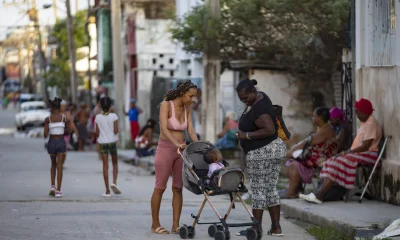
 International3 days ago
International3 days agoCuba confirms 76 femicide cases in 2024, among highest rates in region
-
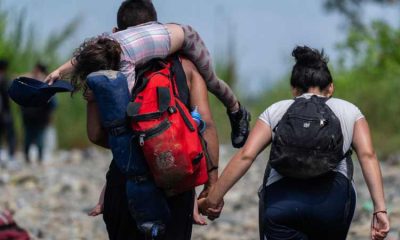
 Central America3 days ago
Central America3 days agoIllegal crossings at U.S.-Mexico border plunge 92% in historic shift
-

 Central America3 days ago
Central America3 days agoCosta Rica extends humanitarian status and grants work permits to stranded migrants
-
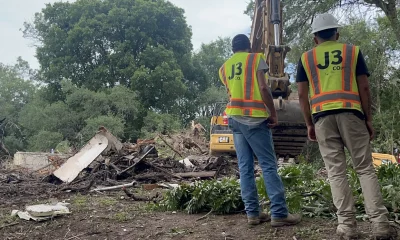
 International3 days ago
International3 days agoU.S. thanks Mexico for sending rescue teams after deadly Texas floods
-

 International4 days ago
International4 days agoDOJ and FBI officially deny Jeffrey Epstein ‘client list’ conspiracy theories
-

 International4 days ago
International4 days agoIranian president says Israel tried to assassinate him, warns U.S. against war
-

 International4 days ago
International4 days agoHonduras regrets U.S. decision to end TPS for 72,000 hondurans
-

 Central America2 days ago
Central America2 days agoDengue crisis in Panama: co-circulating serotypes fuel rise in fatal cases
-

 International4 days ago
International4 days agoBolsonaro thanks Trump for support amid Brazil coup trial
-

 International4 days ago
International4 days agoSheinbaum urges unity and respect after clashes over gentrification in Mexico City
-

 International3 days ago
International3 days agoMexico launches probe into alleged $25 million bribe to ex-president Peña Nieto
-

 International4 days ago
International4 days agoGunman killed after shooting outside Texas Border Patrol Building
-

 International2 days ago
International2 days agoICE set to become America’s largest security force under Trump’s $75B immigration overhaul
-

 International4 days ago
International4 days agoRussian ex-transport minister found dead after dismissal by Putin
-
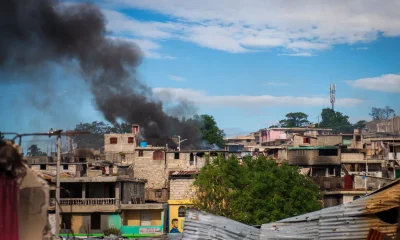
 International4 days ago
International4 days agoTrump ends TPS for haitians as gang violence surges in homeland
-

 International3 days ago
International3 days agoTrump and Bondi slam Epstein inquiry amid Texas flood tragedy
-

 International2 days ago
International2 days agoHarvard faces Federal pressure over immigration docs, autonomy dispute intensifies
-
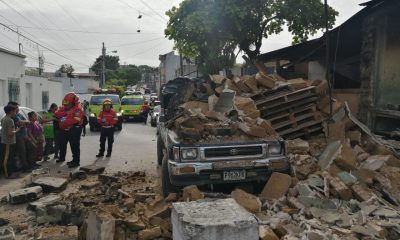
 Central America1 day ago
Central America1 day agoGuatemala hit by over 300 quakes; death toll rises to seven
-

 Central America1 day ago
Central America1 day agoU.S. revokes visas of top Costa Rican lawmakers and constitutional judge
-
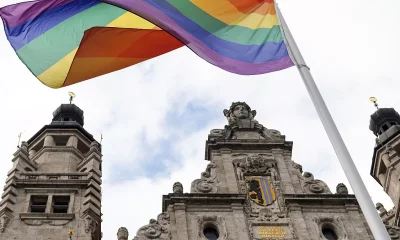
 International1 day ago
International1 day agoGerman parliament orders removal of LGBTQ+ flags amid growing controversy
-

 International1 day ago
International1 day agoUK and France seal innovative migrant exchange deal to curb channel crossings
-

 International1 day ago
International1 day agoFederal judge halts Trump’s order to end birthright citizenship
-
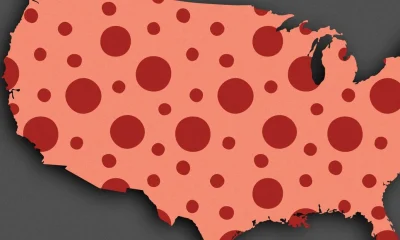
 International1 day ago
International1 day agoCDC reports record measles outbreaks in 39 U.S. jurisdictions this year
-

 International10 hours ago
International10 hours agoSheinbaum slams ICE raids after 355 mexicans detained and 67,000 repatriated
-

 International1 day ago
International1 day agoUkraine gains $10 billion in commitments during Rome Recovery Forum
-

 International1 day ago
International1 day agoSix agents penalized for conduct failures in July 2024 attack on Donald Trump
-

 International10 hours ago
International10 hours agoTrump defends Bolsonaro, hints at talks with Brazil after tariff warning
-

 International10 hours ago
International10 hours agoTrump administration begins downsizing ‘bloated’ state department workforce




















